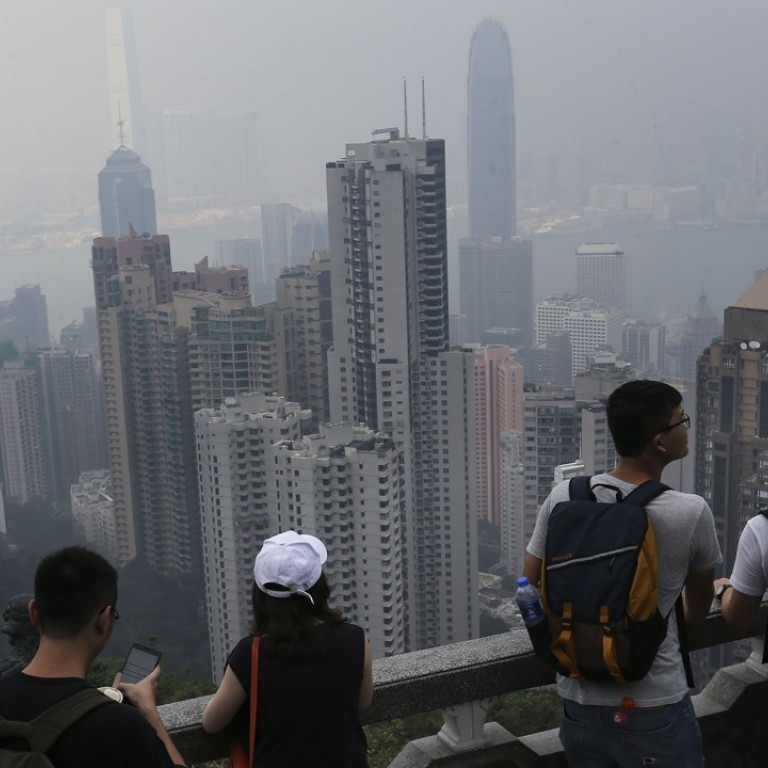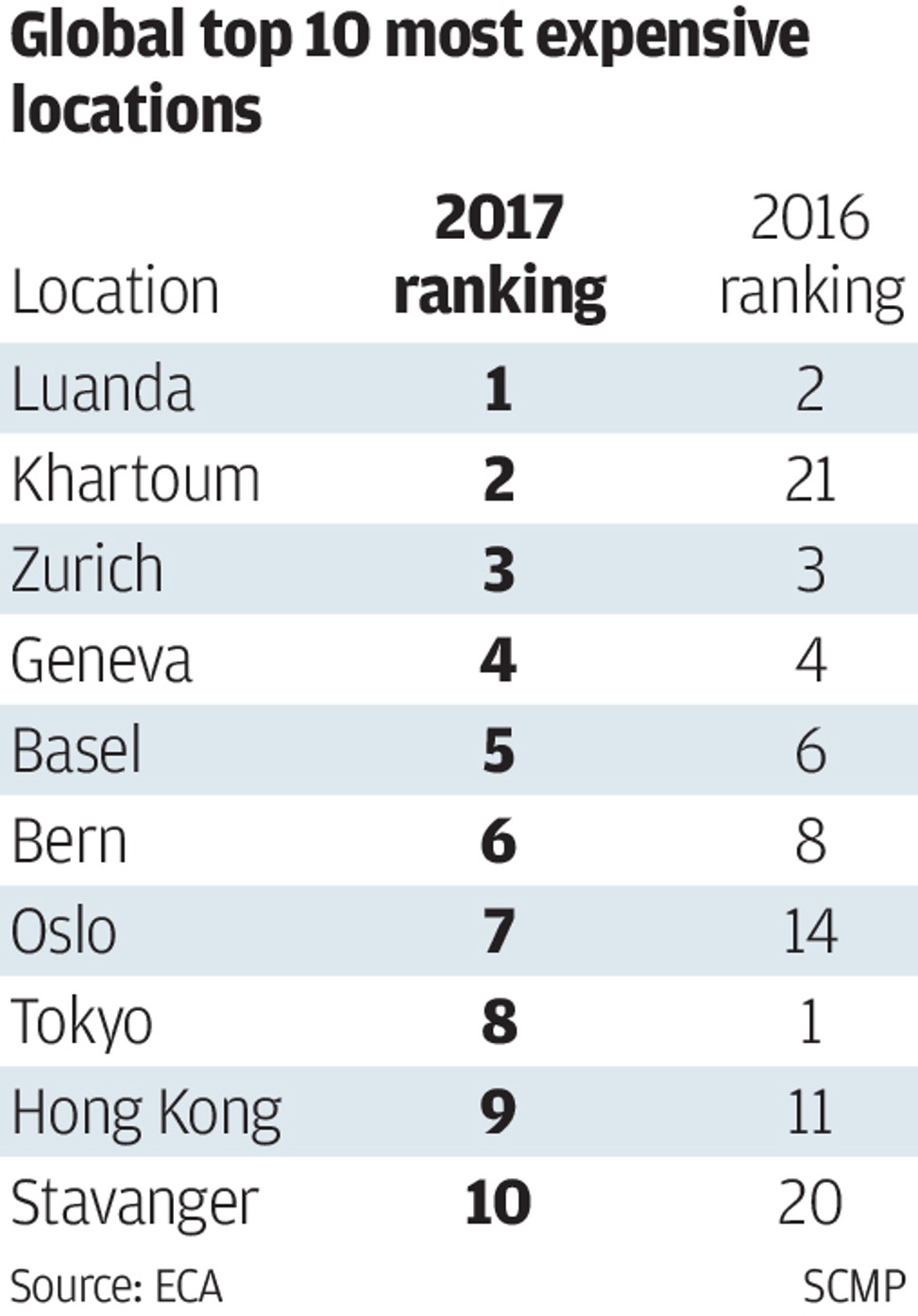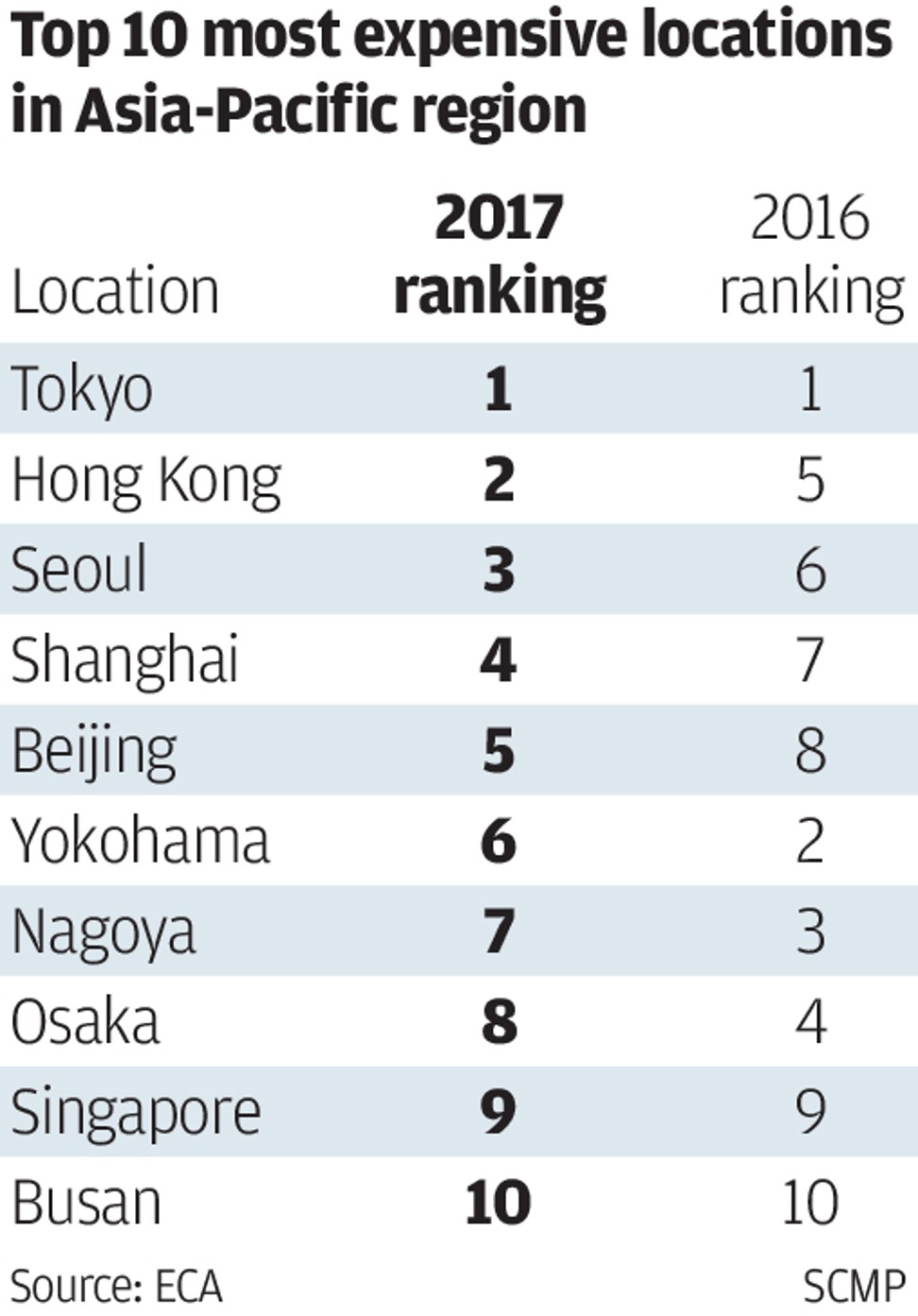
Hong Kong is the 9th most expensive city in the world for expats, ahead of Singapore at 21st: survey
Rents are not factored into rankings, but study finds day-to-day items from petrol to a cup of coffee in city are pricier than in New York and London
Hong Kong is back in the top 10 most expensive cities for expatriates in 2017, driven by the higher prices of goods and a stronger currency, according to a survey on cost of living.
On Tuesday, human resources consultancy ECA International released its findings, showing that the city, which fell out of the top 10 last year, rose two places to the 9th spot in global rankings. The study takes into account the costs of daily expenses such as food, petrol and clothing.
Among priciest cities in the Asia-Pacific region for expats, Hong Kong rose three places to the 2nd position, after Tokyo. Singapore, a rival financial hub to Hong Kong, ranked 9th among Asia-Pacific cities and 21st in the world.
Meanwhile, Tokyo fell to the 8th place in global rankings, losing its number one spot last year to Luanda in Angola.
“Faster rates of price increase in Hong Kong combined with a strengthening of the dollar against the yen both contributed to Hong Kong leapfrogging many of the Japanese locations that were ranked above it last year,” Lee Quane, Asia regional director at ECA International, said.
Why are Hong Kong’s expats still down in the dumps about living in the city?
The Hong Kong dollar strengthened more than 2 per cent against the Japanese yen over the past year.
According to the survey, a litre of petrol in Hong Kong costs US$2.13 – 142 per cent higher than in New York. A medium-sized cup of cappuccino in Hong Kong costs US$4.77, 40 per cent more than in London, while beer at a local bar costs US$11.90, 41 per cent more than even in Luanda.
The survey compared prices of about 160 day-to-day consumer goods and services in 262 cities. It has been conducted twice a year for more than 45 years.
Although rents were not considered, the record-high property prices in Hong Kong could have contributed to the rise in prices of other items, Quane said.
“Obviously, if commercial rents go up, restaurants need to charge more for meals.”
Grace Park, a 25-year-old Korean who moved to Hong Kong five years ago, said the city’s ranking was lower than she expected. “I thought Hong Kong would be the second or third most expensive in the world,” she said.
Park said she found it nearly impossible to save money, as her rent takes up more than half of her salary. “The reason I’m staying in Hong Kong even though it’s so expensive is that it’s a great city to stay, especially for people in their 20s,” Park said.
Anastasia Tan, a 21-year-old Indonesian, found Hong Kong’s food prices a “shock” when she came to Hong Kong four years ago.
“Eating at a normal restaurant that are not cha chan teng in Hong Kong could easily reach up to HK$100 to HK$200. But back in Jakarta, with that price, it’s equivalent to a buffet meal in a five-star hotel.”
Tan also believed dining costs were much higher than four years ago.
“Restaurants didn’t raise it drastically, especially those big catering companies – they lifted the price around HK$2 every six months or a year. But looking back from now, it does feel like the price has been raised quite a lot,” Tan said.



